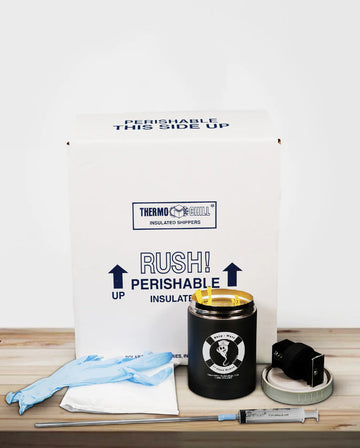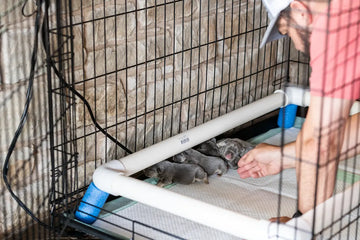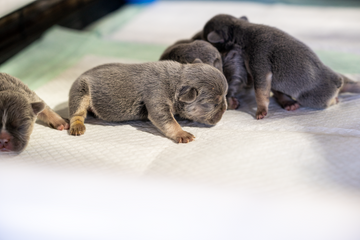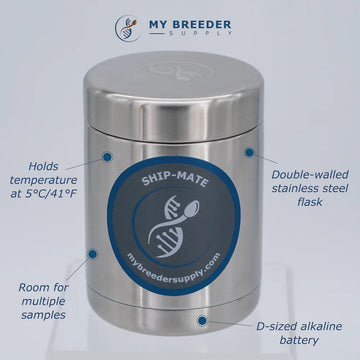
With the advent of home testing kits for Parvo, dog owners have a preliminary tool to assess their pet's health status. These kits detect the presence of Parvovirus antigens in a dog's feces through a simple process that can be performed at home.
While not a substitute for professional veterinary diagnosis, these tests serve as an early detection system, allowing for quicker response and treatment.
Administering the test involves collecting a fecal sample with the provided swab and exposing it to the test's reactive agents. It's crucial to follow the kit's instructions meticulously to avoid contamination and ensure the accuracy of the test results.
Given the contagious nature of Parvo, utilizing gloves and proper hygiene practices during the test is paramount.
Deciphering the Results of a Home Test
Understanding the results of a home Parvo test is crucial for the next steps in care. A positive result indicates the presence of Parvovirus antigens and warrants immediate veterinary attention. Conversely, a negative result, while potentially reassuring, is not definitive.
False negatives can occur, especially in the early stages of infection. Therefore, if symptoms persist, professional veterinary evaluation is necessary.
When to Consult a Veterinarian
Regardless of home test results, certain situations demand veterinary intervention. These include severe or worsening symptoms, such as uncontrollable vomiting and diarrhea, which can rapidly lead to dehydration and shock.
Immediate veterinary care can provide critical supportive therapies, such as fluid replacement, anti-nausea medication, and antibiotics to combat secondary infections.
Prevention Strategies Against Parvo
Vaccination is the cornerstone of Parvo prevention. Starting from as early as six weeks of age, puppies should receive a series of vaccinations, followed by regular boosters throughout their life.
Keeping the living environment clean and minimizing exposure to potentially infected dogs or environments are also crucial steps in preventing Parvo.
Managing a Parvo Diagnosis at Home
For dogs diagnosed with Parvo and recommended for home care by a veterinarian, maintaining hydration and providing easily digestible nutrition are key. Isolation from other pets to prevent the spread of the virus, along with regular cleaning and disinfection of the environment, is essential.
Monitoring the dog's symptoms and keeping in close contact with the veterinarian is critical for adjusting care as needed.
Monitoring and Aftercare Following Parvo
Recovery from Parvo can be a slow process, requiring careful monitoring for any signs of relapse or complications. Gradually reintroducing regular activities and maintaining a balanced diet helps support recovery.
Regular veterinary check-ups post-recovery are essential to assess the dog's health and prevent any long-term complications.
FAQs for Parvo Home Test Guide
How accurate are home Parvo tests compared to professional veterinary tests?
Home Parvo tests are generally reliable for preliminary screening but are not as accurate as professional tests conducted by veterinarians. They should be used for initial assessment rather than definitive diagnosis.
Can a dog still have Parvo even if the home test result is negative?
Yes, a negative result on a home test does not completely rule out Parvo, especially if the dog shows symptoms consistent with the virus. In such cases, consulting a veterinarian for further testing is crucial.
What immediate steps should I take if my dog tests positive for Parvo at home?
If your dog tests positive for Parvo with a home test, immediate veterinary consultation is essential. Professional confirmation of the diagnosis and prompt treatment are critical for the best chance of recovery.
How can I prevent my dog from contracting Parvo?
The most effective way to prevent Parvo is through regular vaccinations starting from puppyhood. Additionally, maintaining a clean environment and avoiding contact with infected dogs or contaminated areas can also help reduce the risk.
Is Parvo treatable and what is the recovery rate for dogs?
Parvo is treatable, especially if caught early. The recovery rate varies depending on several factors like the age and health status of the dog, and the promptness of treatment. With aggressive treatment, many dogs can recover, but the virus can be fatal without timely intervention.




